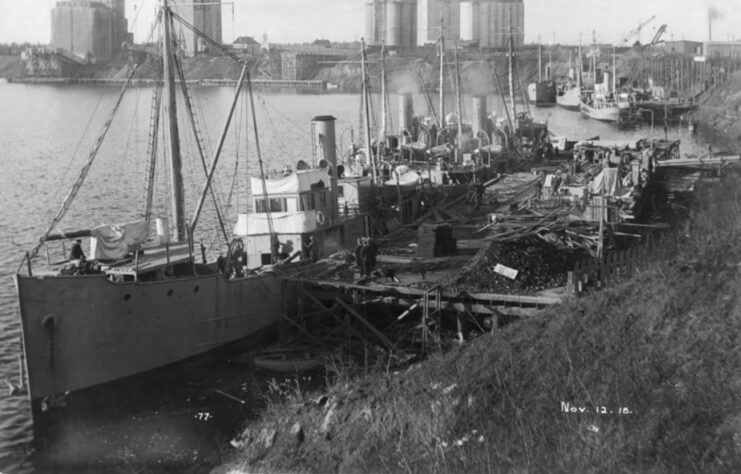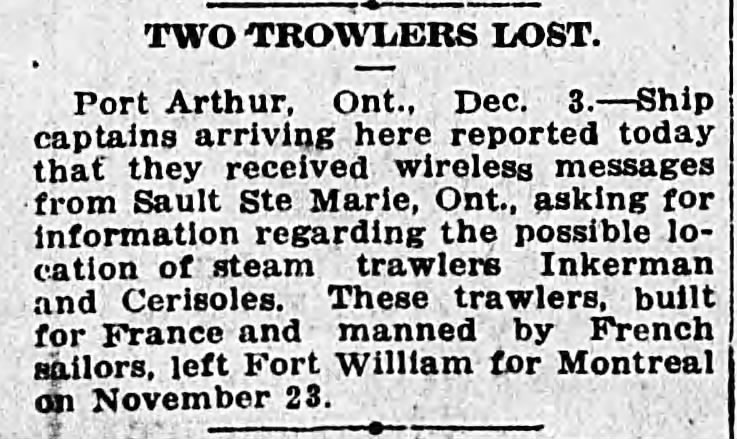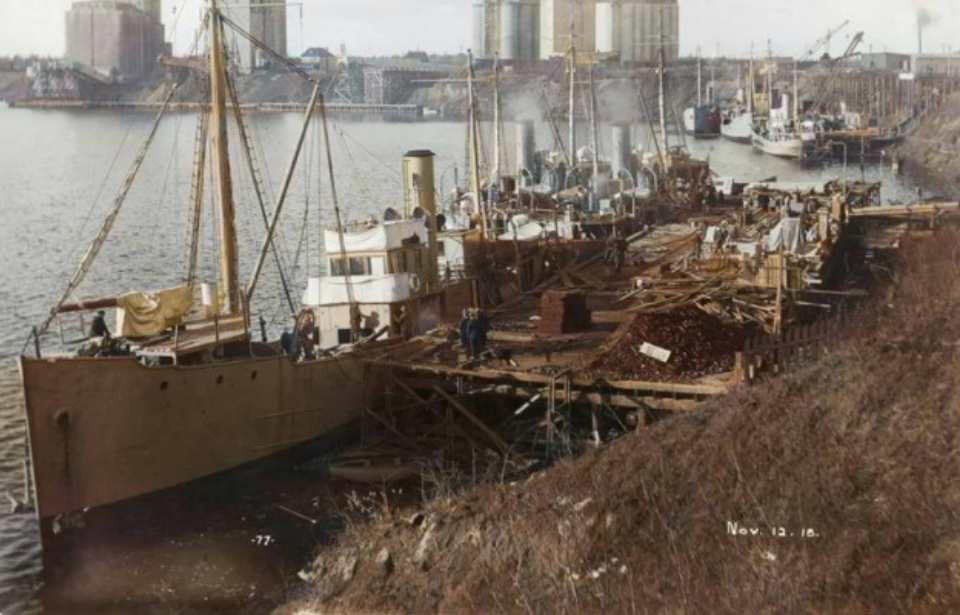A number of ships have fallen victim to the wicked weather of the Great Lakes over the centuries. One, the loss of the SS Edmund Fitzgerald, was immortalized in the classic Gordon Lightfoot song. Several were lost on Lake Superior, including two World War I-era minesweepers, Inkerman and Cerisoles. While searching for the ships, a television host, working alongside the Great Lakes Historical Society, came across something he wasn’t expecting: the wreck of a wooden tugboat.

Expedition Unknown host Josh Gates was kayaking through Lake Superior’s Soo Locks on the lookout for the two minesweepers when his team located the wreck of Satellite, a tugboat that sunk beneath the water’s surface in 1879.
According to a press release by the Great Lakes Historical Society, the tugboat ran into difficulties while towing four barges on June 21, 1879. “One account suggests that she suffered a mechanical problem, while another says that she struck a floating log and started taking on water,” the release reads. This caused Satellite to sink, never to be seen again – that is, until 2022.
While searching alongside the R/V David Boyd and a remotely-operated underwater vehicle (ROV), the team discovered a target made from wood. As Inkerman and Cerisoles had steel hulls, it was determined the wreck, given its location, must be Satellite.
While excited about discovering what was once “one of the most beautiful vessels on the Great Lakes,” Gates left Lake Superior without locating the minesweepers. He did, however, have enough footage for Expedition Unknown, with the episode airing in June 2023.

Built by Canadian Car and Foundry (CC&F) via a contract from the French government, Inkerman and Cerisoles were intended to clear sea mines in the English Channel and along French coast. The latter was named for the Battle of Cérisoles in the Italian War of 1542-46, while Inkerman‘s name was derived from the 1854 Crimean War battle.
During their maiden voyage on November 24, 1918, Inkerman and Cerisoles disappeared. The minesweepers, along with a third, were traveling through Lake Superior for the Atlantic Ocean when they ran into poor weather. Fighting heavy snow, large waves and high winds, the trio lost sight of each other.
While the third vessel, Sebastopol, managed to reach safety in Sault Ste. Marie, Ontario, Inkerman and Cerisoles vanished into thin air. Neither the vessels, nor their crews of 76 French sailors and two Canadian captains, were ever found. Along with being the last warships to disappear in the Great Lakes, both minesweepers account for the largest loss of life on Lake Superior.

The search effort by Expedition Unknown isn’t the only one to have occurred since the original in 1918. In 2017, the National Museum of the Great Lakes conducted a month-long search near the Keweenaw Peninsula, but came up empty.
More from us: American Soldier Who ‘Willfully’ Crossed Border Into North Korea Was Facing Military Disciplinary Action
Discovery Channel’s Expedition Unknown (2015-present) investigates the world’s most enduring legends and mysteries. Among those Gates has looked into are the disappearance of Amelia Earhart, Captain Morgan’s lost gold, the infamous World War II-era gold train and Britain’s Stonehenge.
